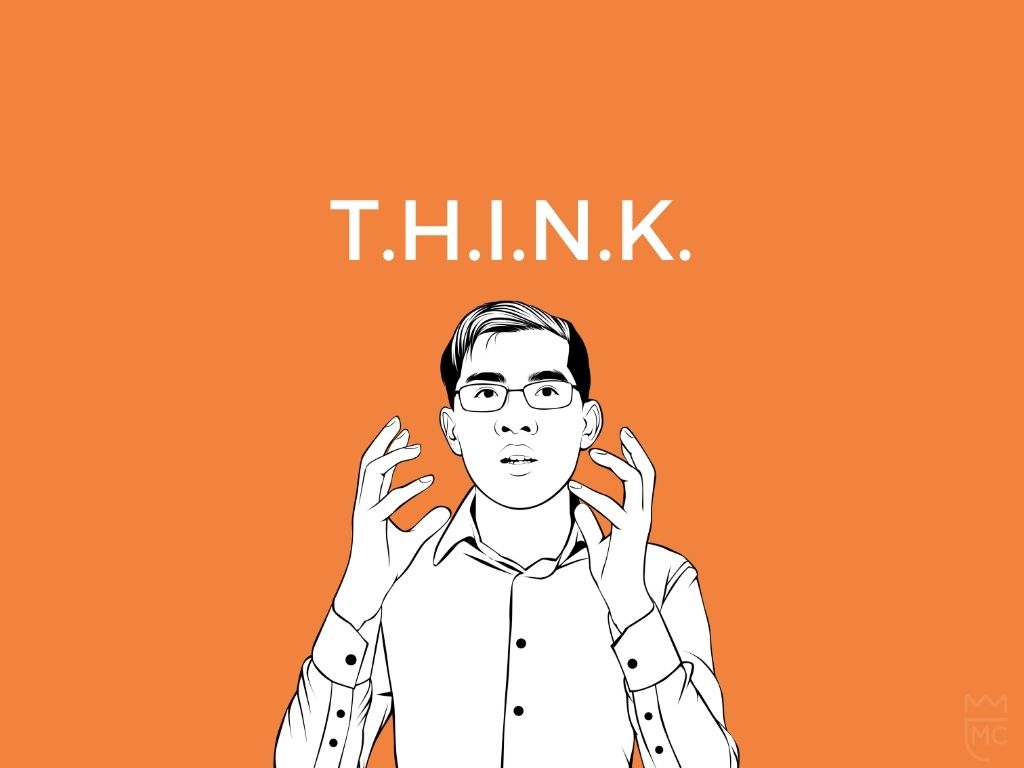October might as well be the month dedicated to mental health as 10 October is World Mental Health Day and you know what?
It’s ever more important to understand your mental health, and ensure your mental well-being is ok
Especially after Covid 19 whack the world such a bummer and after the world got into a lockdown as an attempt to protect our physical health and well-being
It is inevitable for our mental health to be affected next
Although of course you could be asking
“Hey it’s already October 2020, months after Covid started and we are recovering aren’t we?”
And you know what, that may be true for some, but it ain’t true for all
Even until today, there might be people suffering worse as the days go by as they couldn’t adapt to the changes
As their mental well-being broke down in the initial lockdown (or Circuit Breaker in Singapore)
Even now there are people suffering from Zoom or social media fatigue
All of these and more have an impact on our mental health in more ways than one

So what’s World Mental Health Day about?
Let’s have a look at what WHO, World Health Organization, says about World Mental Health Day:
World Mental Health Day is observed on 10 October every year, with the overall objective of raising awareness of mental health issues around the world and mobilizing efforts in support of mental health.
The Day provides an opportunity for all stakeholders working on mental health issues to talk about their work, and what more needs to be done to make mental health care a reality for people worldwide.
WHO, World Health Organization
I’m going to focus on one key aspect that I think is the most crucial in today’s world
And that is the willingness to talk about mental health, as well as the openness to talk about it
And please stop and drop all stigmatisation as well as assumptions of what mental health is
You ain’t helping yourself nor your loved ones in that manner
If you read until here and wish to read on, I thank you for your efforts
Because there are some people that might avert their gaze, thinking their mental health will not be affected in anyway, and sadly, that denial could be one of the factors that is detrimental to them
Yes, for today’s blog I’m focusing on this key concept
what more needs to be done to make mental health care a reality for people worldwide
WHO, World Health Organization
Although I write this blog with the world’s interests at heart, I will prefer to start from a point first
Home, essentially
Singapore being an Asian country, we have to admit we have this stigma about mental health issues
Oh yea, please note there is a difference between mental health and mental health issues
Mental health is just like your physical health
You need to take care of both, otherwise if you do not, it may suffer certain side effects
For physical, you might fall sick more easily
For mental, you might break down due to stress or develop anxiety
You get the picture 😉
Unfortunately, even until today, it is possible that some of us might think or associate “mental health” as a problem
Sad to say…
So yea, please note the differences between the two
And if you need to reread this blog with a new awareness of mental health being just referring to the state of your mental well-being (like with physical health)
Please go ahead 🙂

Back to the stigma surrounding mental health
Because long ago, we didn’t understand mental health issues too well
That is true
Hence we associate certain stigma such as mental health issues might mean someone is crazy
Or a killer
Or suicidal
For the simple record, it’s not
Please drop all these negative stigma regarding mental health issues
Read my blog (although I didn’t blog about all mental health issues yet so you might find just a few articles or so) or Google is your best friend to understand more in depth about mental health issues
Especially if you suspect your loved ones might have something like anxiety or OCD (Obsessive Compulsive Disorder) or even depression
Actually special needs like autism and ADHD (Attention Deficit Hyperactivity Disorder) also has its stigma but that’s a whole huge topic so I won’t go into it for now
Drop the stigma that depression means the person is suicidal
Drop the stigma to call a person crazy
Drop the stigma that someone is weak to suffer from mental health issues
Drop the stigma that we cannot talk about mental health
Mental health is just as important as physical health, and affects children all the way to adults
If you imagine your body is being cut with tiny blades every day, eventually you get injured enough that you cannot function properly right?
So if you imagine your mind is being cut by tiny blades of stress every day, what will happen?
Or if you get hit with a mental bulldozer like a trauma?
Well, that’s kinda the simple version for how mental health issues may arise from
That’s an article on its own too
I know it ain’t easy to be open about mental health and mental health issues but we really got to start somewhere ok?
So stay with me on this

There are a few ways we can go about to do this
One is to ask your friends and loved ones about their day, or anything recently that pop up that they want to talk about
You don’t have to ask a bunch of people every day, start with 1-2 people a day
Just checking in will help a lot, especially if they do have issues too
Another is to be understanding and non-judgemental to other people
Yea, the stranger across the street might be showing a behaviour that is odd or not usual, yet you being non-judgemental will mean you don’t judge or assume the worse of that person
This is because we have no idea of their circumstances
The next thing you can do is to share such articles about mental health
Sharing such articles opens up the channel for the people around you to talk about such issues
Even sharing that there are helplines available may allow your friends (who might still be cautious to share their issues with you) to seek help appropriately
All these are ways to open up and start conversations around mental health and mental health issues
As well as create a safer environment for such conversations to open up
One thing you can stop (if you do it anyway) is to stop sharing things that might spread negativity or further stigmatize mental health issues
So for example, perhaps you may have seen a video about a boy slapping his mum a few times and you shared it cause OMG right?
Here’s my thinking when I saw it
- what’s the point of me sharing?
- does it create a positive impact?
- what’s the story behind this family that people may misunderstand?
Yes, perhaps the son has mental health issues or anger issues, yet perhaps the parents did not have good parenting styles to inculcate positive values in the boy during his childhood in the first place so in the end, it doesn’t make sense to share the video at all isn’t it?
Similarly, if you saw someone acting out in a particular way, you don’t really have to take a picture or video and post on social media right?
In a way that’s “shaming” the behaviour and/or the person
And this in turn breeds more negativity
So if you want to share any article or video, it might be good to pause and T.H.I.N.K.
- Is it true?
- Is it helpful?
- Is it inspiring?
- Is it necessary?
- Is it kind?
From here, you can determine whether you want to share the article or video, whether it is a positive step or a negative one
And this is also a great way to start opening conversations about mental health as well as having more mental health awareness
Among other pieces of information too
Alright, I hope you had a good weekend and enjoyed this article
Thank you for reading and spending some time with me 🙂
Til next time!





